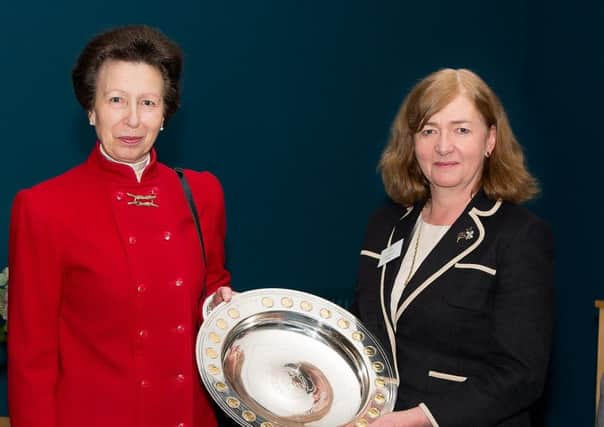Studying tiny parasites makes a big difference
This article contains affiliate links. We may earn a small commission on items purchased through this article, but that does not affect our editorial judgement.


He said the two big challenges facing the industry were the sustainable production of food and, quite specifically, dealing with the growing problem of antimicrobial resistance.
Speaking in Edinburgh to an invited audience of those working in the livestock industry, Millar said a great deal of research time and effort had gone into parasitic infestations of livestock, but what the industry needed now were solutions. If these were forthcoming, they would help achieve the sustainable production of food.
Advertisement
Hide AdAdvertisement
Hide AdAs an example of the new thinking on dealing with internal parasites, Moredun scientist Dr Dan Price described how application of new protein expression technologies were beginning to revolutionise the development of vaccines against nematode worms.
He and other colleagues are working on the Europe-wide Paragone research project dealing with internal parasites which, apart from animal welfare concerns, wipe millions of pounds off farmers’ balance sheets globally.
The work at the Moredun has identified eight proteins associated with the stomach worms in sheep and, by using these proteins in a vaccine, good control of the parasites have been achieved. However, he said there was still work to be done before a commercial vaccine could be introduced.
Listening to his presentation and others illustrating the cutting edge of research at the Moredun was the Princess Royal, who 21 years ago opened the facility on the Pentland Science Park.
During her visit, the Princess met guests including post-graduate students and early career scientists, representatives from the farming industry, designers, the research organisations and the Equine Grass Sickness charity.
She also had a private tour of the laboratories and met scientists involved in livestock disease surveillance and diagnostics, the E.coli research group and the Johne’s disease research collaboration.
Earlier, the Princess presented Professor Julie Fitzpatrick – chief executive of the Moredun Foundation and scientific director of the Moredun Research Institute – with the Biennial Smithfield Trophy, in recognition of her lifetime’s work in animal research.
In the citation for the award, Andrew Gilmour of the Smithfield Club highlighted Prof Fitzpatrick’s achievement in keeping the Moredun as an internationally recognised institute in animal research.